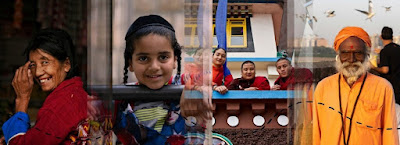So part of the responsibility of every believer is to critique the cultures of the world. For many of us that comes easily enough: we have a ready reason why the people in said culture act the way they do - it is because of Hinduism, or Buddhism, or Communism, or whatever. But that is a superficial critique that does not deal with persons as agents, or take into account the many and varied forces and wider influences that shape the culture.
I have had to repent of my own often trite and superficial judgments when confronted by customs that I don't like. It is simply too easy to give in to prejudice.
The Fourth Lausanne Congress brought together a wide array of the global evangelical movement. Such diversity of denominations, vocations, languages, and cultures. All one in Christ and agreed on the great central facts of the death and resurrection of Christ, and their unique and powerful answer to the spiritual, social, and environmental problems of the world.
That unity, in Seoul, was in the midst of a diversity that one rarely encounters. So it requires the help of the Spirit to overcome one's sinful prejudices towards others.
But, as I have already indicated in this blog series, there were controversies. On one level, that is not such a bad thing: there should be a place for robust debate and argument. On another, though, it is so easy for such debate to lack grace. Rather than throwing light on actions or words that could be revised, such criticism rather exposes the critic as lacking in love and humility. Anti-social media, of course, just supercharges that.
So it would be understandable if we all retreated into ourselves, afraid to ever exhort another brother.
But that would be an over-reaction.
So allow me to tentatively share a concern I have with Lausanne, along with so much of 'Big Eva': the cult of celebrity. I do not think there was much grandstanding on the stage in Seoul. But I did witness some behaviour that bothered me. And even the information on speakers verged on the pompous.
The cult of celebrity is an insidious intruder: like carbon monoxide it can enter the evangelical bloodstream and slowly but unconsciously poison us to death. At the very least we might find our spirituality seriously compromised.
If I am wrong, as I hope I am, please correct me. If I am right, we have work to do to put our house in order.




